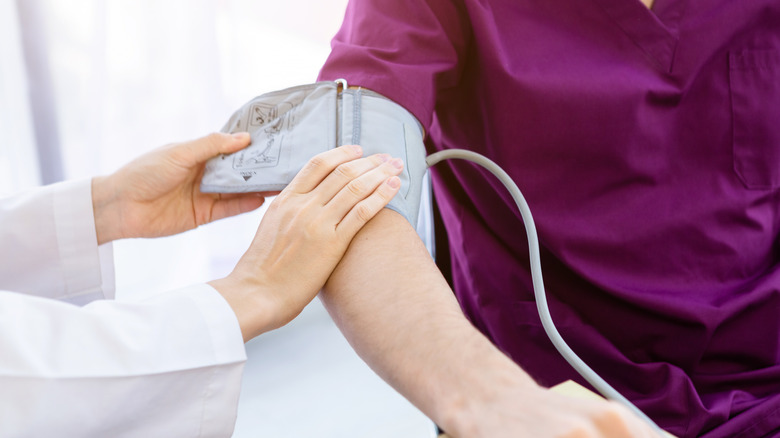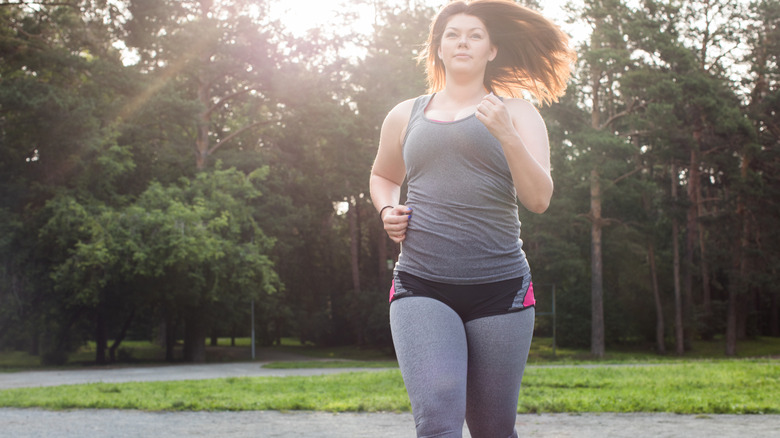How To Lower Blood Pressure Without Medication
High blood pressure, or hypertension, is a red flag for your cardiovascular health. Simply put, when your blood pressure is too high, it means that your blood is pushing against your blood vessels with too much force. Consistently high blood pressure makes your heart and blood vessels work harder, which will eventually damage them. Left untreated, hypertension can lead to vision loss, sexual dysfunction, atherosclerosis, heart attack, stroke, and kidney failure, according to the American Heart Association (AHA).
A normal blood pressure reading is less than 120/80 mmHg, but without measurement, you won't know if your blood pressure is too high, per the Centers for Disease Control and Prevention (CDC). In fact, one thing that makes high blood pressure so dangerous is that there are often no outward signs of the disease. You can feel fine and have hypertension, which is why you should make it a habit to check your blood pressure on a regular basis, according to the CDC.
Lifestyle changes make a difference
You can lower your blood pressure without medication. One way is to lose weight because blood pressure increases with weight. The Mayo Clinic claims that weight loss is the most effective lifestyle change you can make when lowering blood pressure. Your numbers could drop about 1 mmHg per every 2 pounds of weight you lose. Eating a healthy diet will not only help you lose weight, but it can also help lower blood pressure. Adding more fruits and vegetables while reducing sources of saturated fat could lower your blood pressure by 11 mm Hg. Reducing your sodium intake to 1,500 milligrams or less per day may drop your blood pressure by 5 or 6 mm Hg.
Another change that can positively affect your blood pressure is regular, aerobic exercise, such as walking, running, dancing, cycling, or swimming. Aim for 150 minutes per week, as this could lower your blood pressure by 5 to 8 mmHg. Stopping smoking, reducing caffeine, and learning to control stress are other changes that can help, per Mayo Clinic. Cardiologist Craig Walsh notes that even if lifestyle changes don't solve your problem completely, they can reduce the amount of medication you need (via Providence Health & Services).

